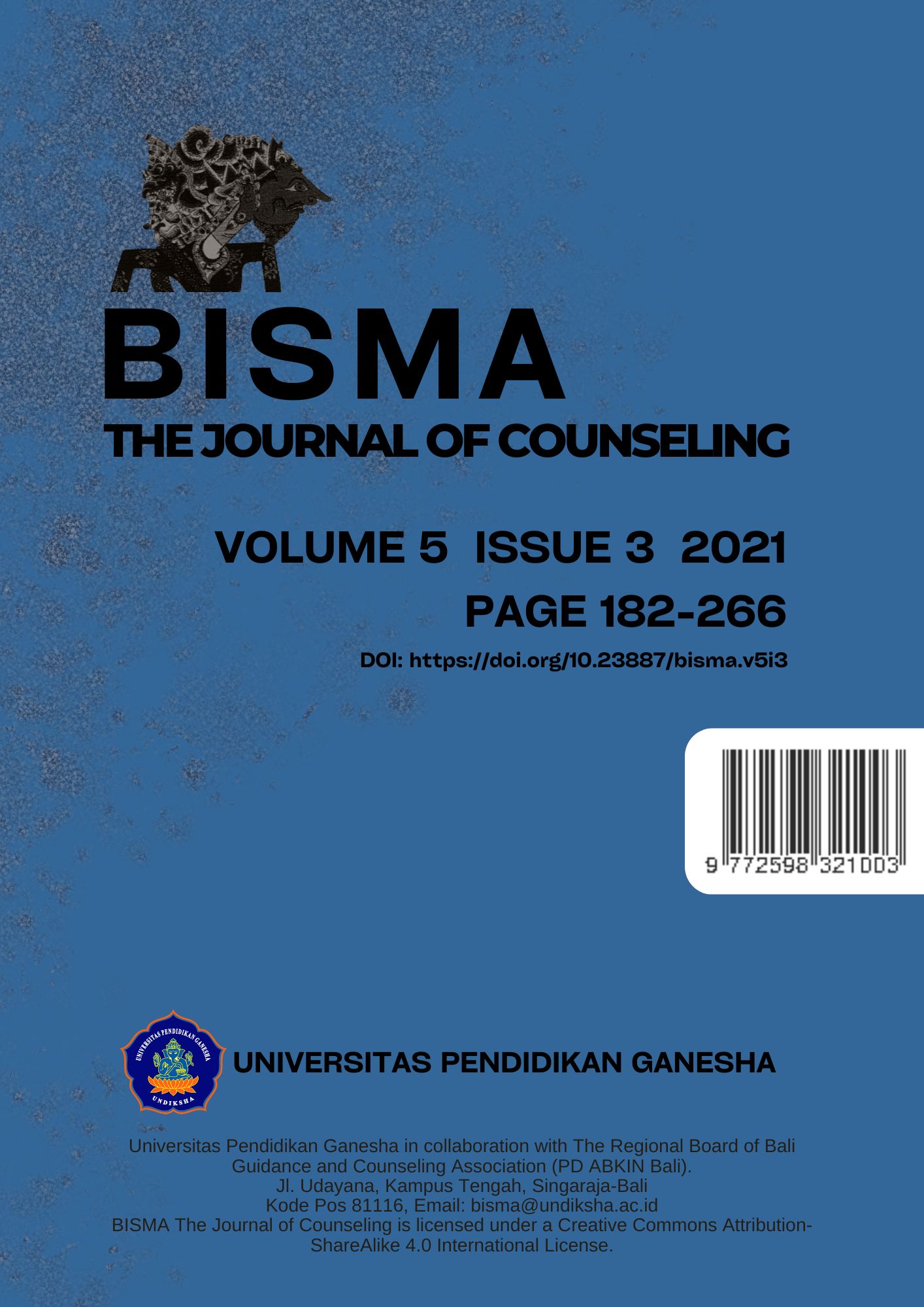Parents Assistance on Down Syndrome Children: Pastoral Counseling Perspective
DOI:
https://doi.org/10.23887/bisma.v5i3.42043Keywords:
mentoring, parents, down syndrome, independentAbstract
Researchers aim to find out how to strengthen and assist parents with strategies for children with Down syndrome to become independent. The method used is qualitative—the procedure used for data collection by observation, interviews, and documentation. Furthermore, the data were analyzed using a data reduction model, data presentation, and verification. The resource persons for this study were ten parents with Down Syndrome children and servants of God involved in pastoral care for families with Down Syndrome children in Jakarta. The results showed that the community for parents with Down Syndrome children is essential because it provides reinforcement and support in mentoring children with down syndrome. After attending formal and informal therapy, Down syndrome children have significant developments that enable DS children to be independent. The primary model of parental assistance is holistically providing whole love and providing therapies, especially music and spiritual therapy.References
APA. (2000). Diagnostic and Statistical Manual Of Mental Disorders. Washington: American Psychology Association.
Blommmendaal. (2012). Pengantar Perjanjian Lama. Jakarta: BPK Gunung Mulia.
Collins, G. R. (2017). Konseling Kristen yang Efektif. Malang: Literatur SAAT.
Gunarhadi. (2005). Penanganan Anak Sindroma Down Dalam Lingkungan Keluarga dan Sekolah. Jakarta: Depdiknas.
Gunarsa, S. (1987). Dasar dan Teori Perkembangan Anak. Jakarta: BPK Gunung Mulia.
Johni Hardori. (2014). The Lost of Pastoral Ministry. In J. Gultom & F. Pantan (Eds.), Reaffirming our Identity: Isu-isu Terpilih Menjawab Perubahan Sekaligus Mempertahankan Identitas (pp. 285–304). Jakarta: Bethel Press.
Kemendikbud. (2016). Kamus Besar Bahasa Indonesia Daring Edisi Kelima.
Lasor, W. S. (2012). Pengantar Perjanjian Lama 2 Sastra dan Nubuat. Jakarta: Gunung Mulia.
Lestari, F. A., & Mariyati, L. I. (2016). Resiliensi Ibu Yang Memiliki Anak Down Syndrome Di Sidoarjo. Psikologia : Jurnal Psikologi, 3(1), 141. https://doi.org/10.21070/psikologia.v3i1.118
Moleong, L. J. (2014). Metodologi Penelitian Kualitatif. Bandung: Remaja Rosdakarya.
Poerwandari, K. (2009). Pendekatan Kualitatif untuk Penelitian Perilaku Manusia. Lembaga Pengembangan Sarana Pengukuran dan Pendidikan Psikologi. Depok: Fakultas Psikologi Universitas.
Rahma, M. S., & Indrawati, E. S. (2017). PENGALAMAN PENGASUHAN ANAK DOWN SYNDROME (Studi Kualitatif Fenomenologis Pada Ibu Yang Bekerja). Empati, 6(3), 223–232.
Setiawani, M., & Tong, S. (2008). Seni Membentuk Karakter Kristen. Surabaya: Momentum.
Sugiyono. (2015). Metode Penelitian Kualitatif dan R and D. In Bandung: Alfabeta. Alfabeta.
Suhartimi, A. (2010). Prosedur Penelitian Suatu Pendekatan Praktek. Jakarta: Renika Cipta.
Trisna, Y. (2012). Counseling Pra Nikah,. Bandung: Kalam Hidup.
Wiriadinata, S. (2010). Orangtua Idaman. Bandung: Lembaga Literalur Baptis.









